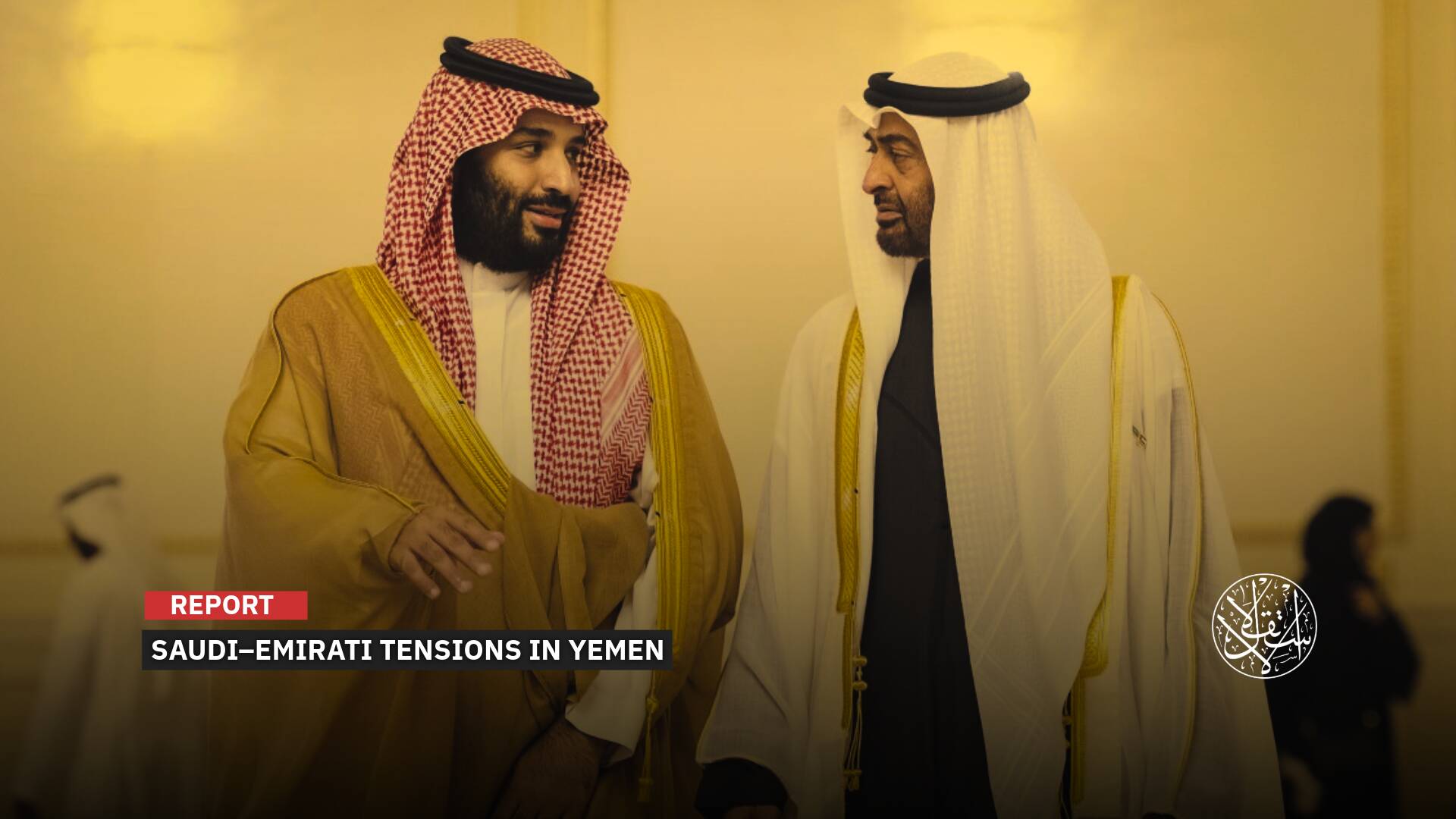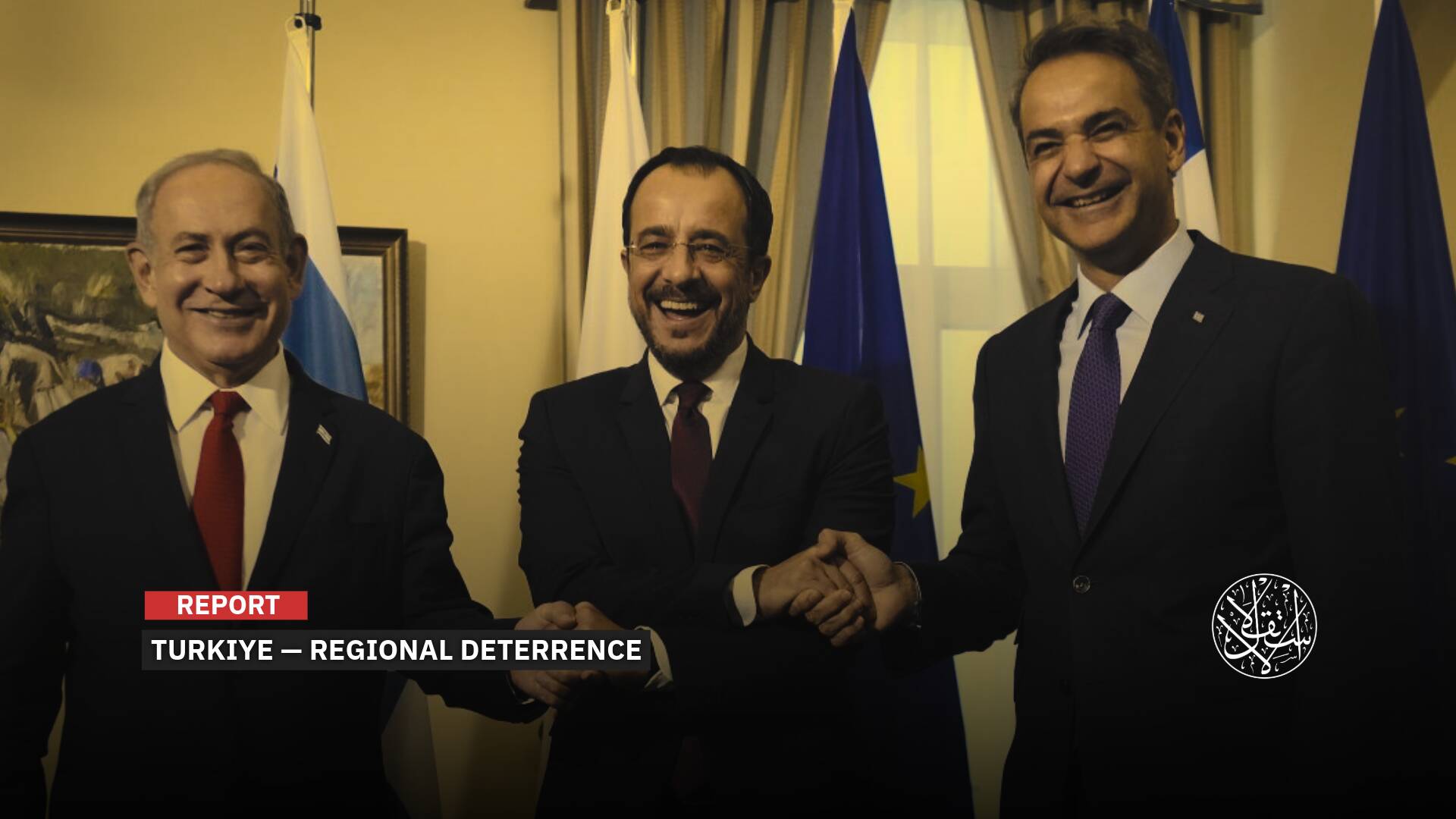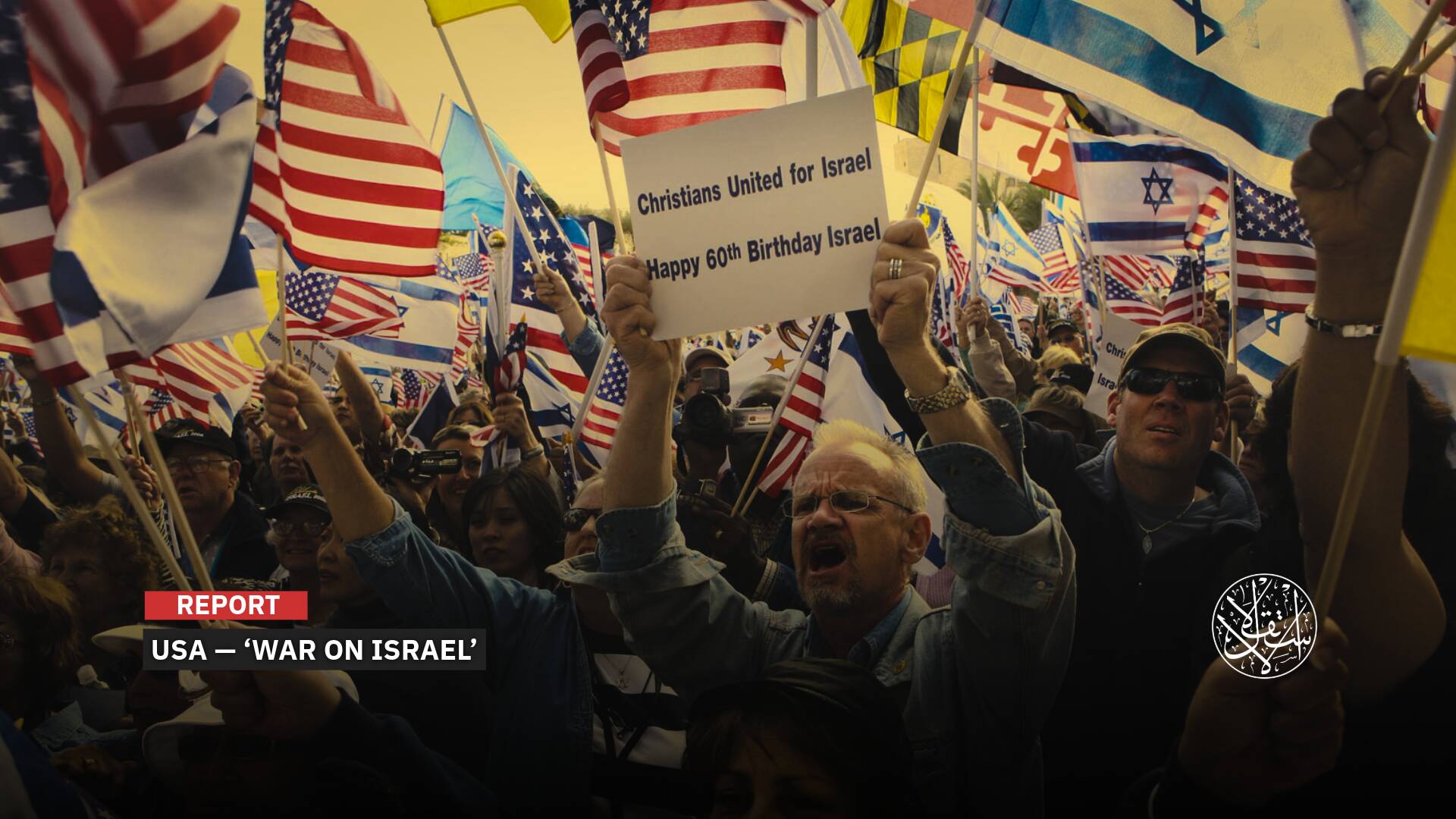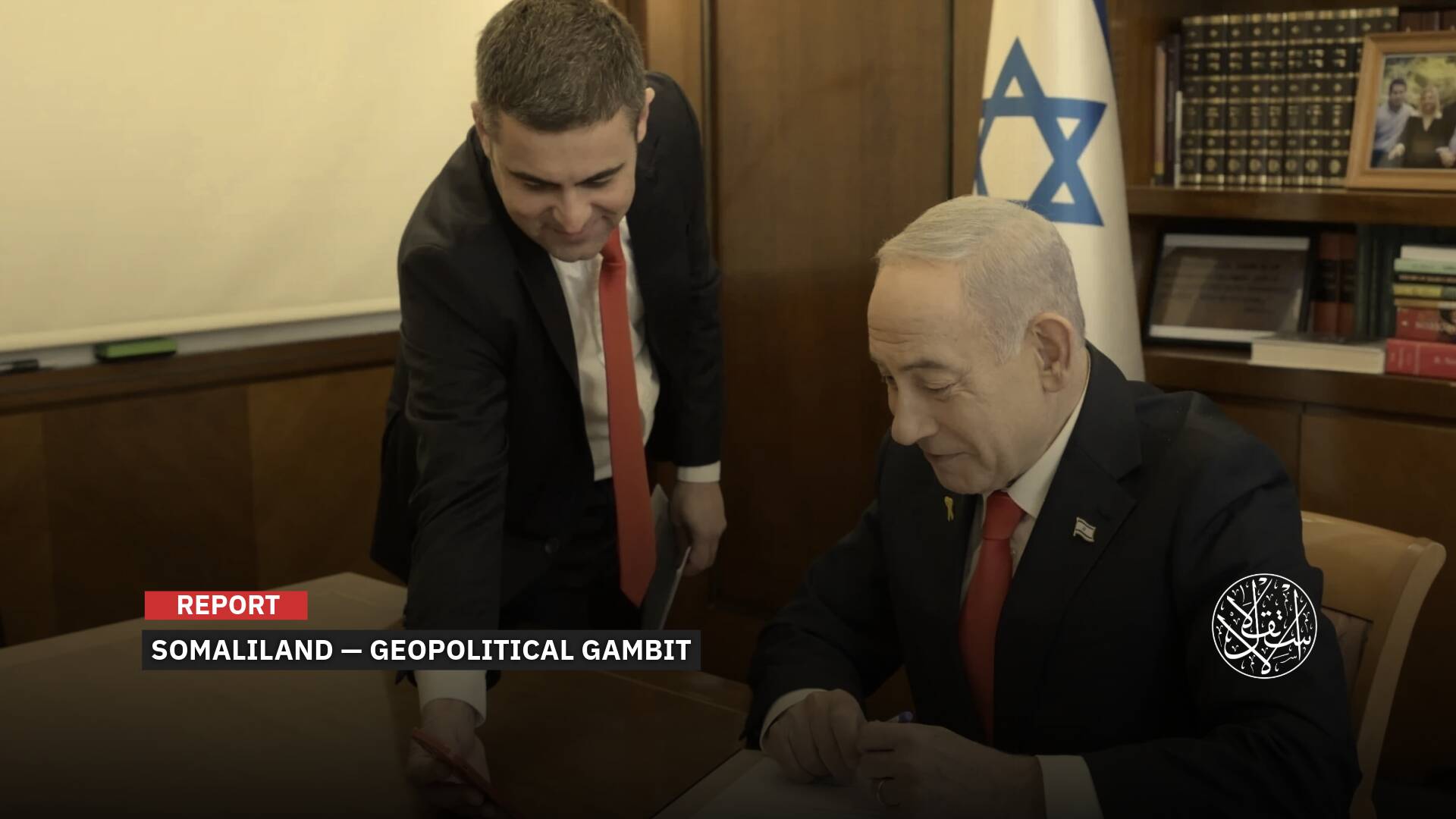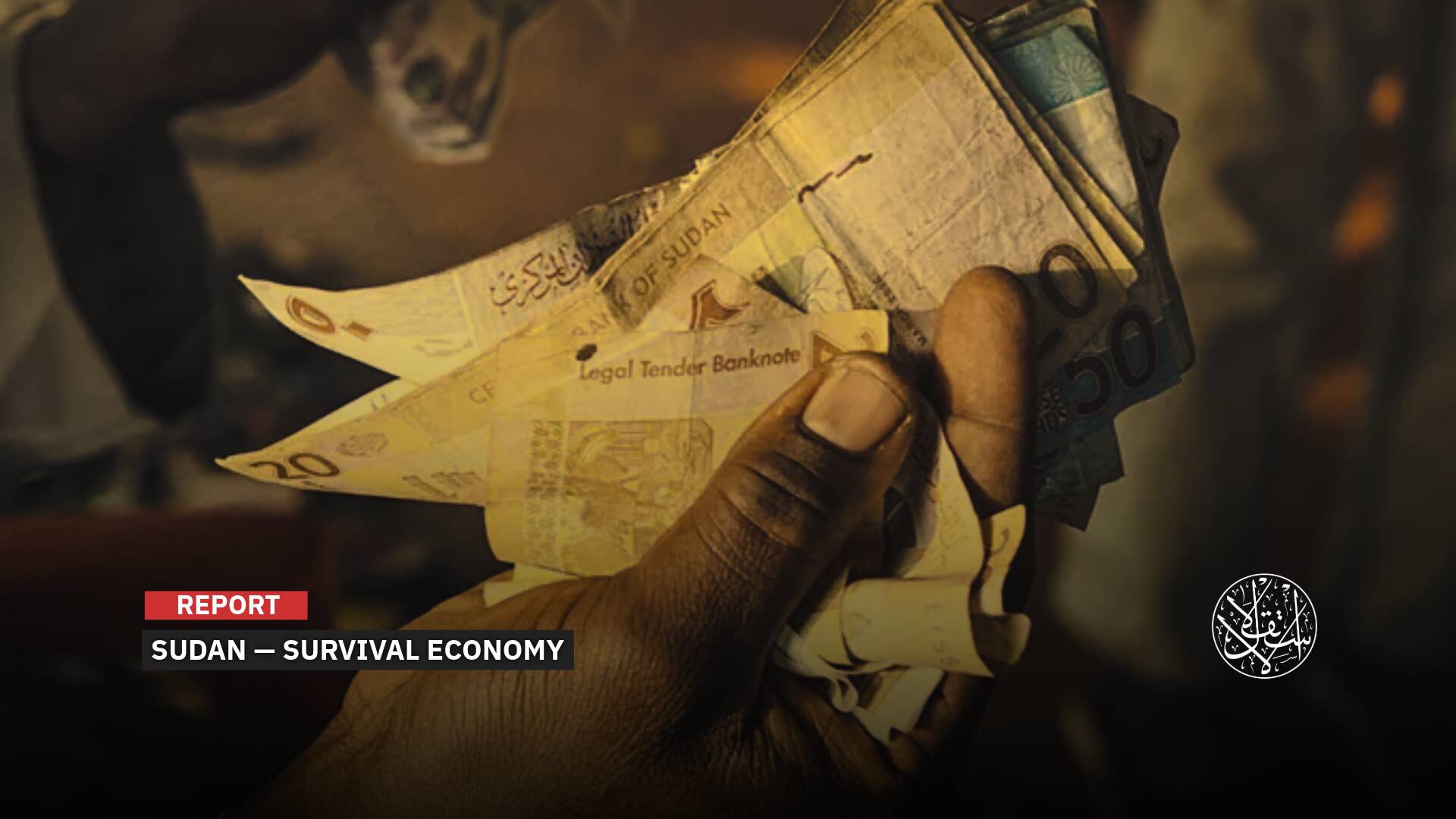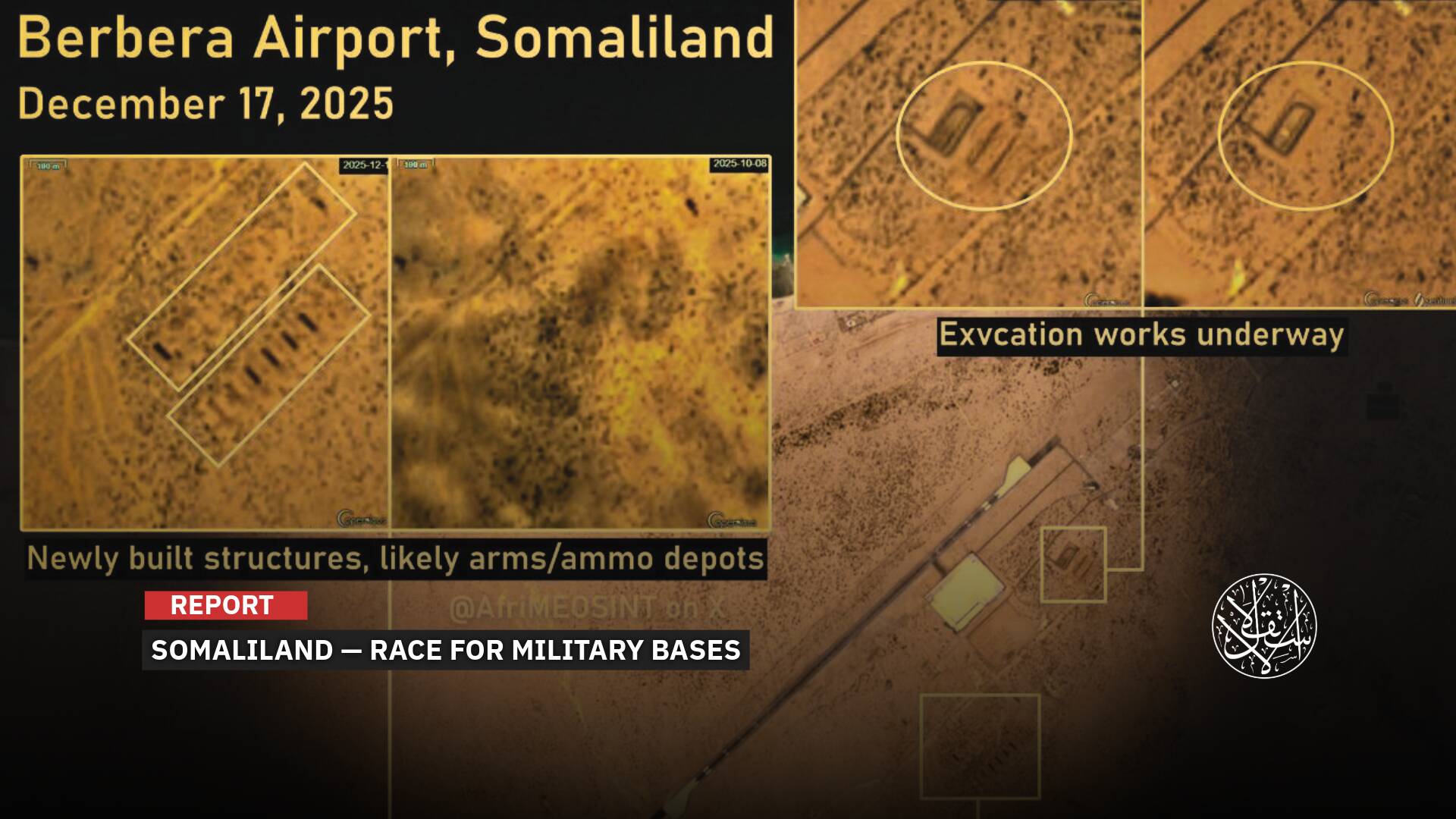Al-Sistani on Israeli Assassination List: A Real Threat or Psychological Warfare?

“The enemy will not dare make such a deadly strategic mistake, for nothing will be left standing.”
In a provocative move, Israeli Channel 14 featured a photo of Iraq's top Shia cleric, Ali al-Sistani, as part of a list of Israeli assassination targets. This raised questions about the implications of this display by the channel, which is closely aligned with Prime Minister Benjamin Netanyahu.
On October 8, 2024, al-Sistani's image appeared alongside those of Houthi leader Abdul Malik al-Houthi, Hezbollah Deputy Secretary General Naim Qassem, Hamas leader Yahya Sinwar, Iranian Supreme Leader Ali Khamenei, and Quds Force commander Esmail Qaani.
A target symbol was placed over each of their heads in the broadcast, but the channel did not explain why al-Sistani was included. His image appeared during a report on the Israeli Occupation's possible response to the October 1 missile attack launched by Iran on “Israel.”
Unlike the other figures, “Israel” has never mentioned al-Sistani (94 years old) as an assassination target. He is a revered religious authority for the Twelver Shia and resides in Najaf, Iraq. His influence extends far beyond Iraq due to his religious leadership.
Red Line
On the official front, the Iraqi government declared its firm rejection of any attack on the standing of the supreme religious authority in Najaf, stating that the revered cleric enjoys the respect of all Iraqis, the Arab and Islamic worlds, and the international community.
In an October 9 statement, Iraqi government spokesperson Bassem al-Awadi condemned the Israeli media for what he called “a cheap attempt to tarnish the image of the religious authority,” after its genocidal actions and public atrocities in Gaza and Lebanon.
Al-Awadi warned of the dangers posed by these racially motivated attempts to undermine sacred figures, which he said would expand the circle of aggression and pose a serious threat to international peace and security.
He further criticized “Israel,” calling it a “criminal entity” that thrives on creating crises and fueling wars, becoming increasingly isolated by the growing global rejection of its actions.
In light of these developments, the Iraqi government called on the UN Secretary-General and international bodies to denounce all actions that offend Muslims and target globally respected figures.
“Our grand clerics, led by Imam al-Sistani, are a deep red line for Shia Muslims worldwide, not just in Iraq,” posted on X Fadi Alshamri, media advisor to the Iraqi Prime Minister, on October 9,
“I say with absolute certainty, the enemy will not dare make such a deadly strategic mistake, for nothing will be left standing. Let's focus on our goals and not get distracted by psychological warfare with clear motives and outcomes.”
Similarly, Iraqi National Security Advisor Qasim al-Araji stressed that the religious authority holds immense respect in Iraq and across the Islamic world, emphasizing that any attack on this status poses a severe threat to religious symbols.
He described the inclusion of al-Sistani on the Israeli target list as “a blatant threat against religious leaders who continue to advocate for peace and the protection of innocent lives everywhere.”
Drawing Iraq Into Conflict
Regarding the implications of placing al-Sistani on the Israeli target list, Iraqi political analyst Latif al-Mahdawi said it is a direct threat to the Shia cleric, particularly if he calls for a “sufficient jihad” against “Israel” should it target Iraq or Iraqi militia leaders.
When ISIS seized a third of Iraq in 2014, al-Sistani issued a fatwa calling for “sufficiency jihad” to combat the group, which led to the formation of the Popular Mobilization Forces (PMF), including various militias, some of which had been fighting alongside Bashar al-Assad's regime in Syria.
“Israel has no red lines and might go as far as assassinating al-Sistani. They may believe that by targeting such a prominent figure, they could rein in militia leaders, but the opposite might happen, plunging Iraq into chaos,” al-Mahdawi told Al-Estiklal.
“By killing al-Sistani, Israel would be provoking not only the militias but Iraq as a whole. The clerical authority plays a role similar to that of Iran's Supreme Leader, as seen when al-Sistani refrained from opposing the U.S. occupation in 2003, urged participation in elections, and declared jihad against ISIS in 2014.”
“While Israel often acts with impunity, I believe the U.S. would not allow them to target al-Sistani. Dragging Iraq into war is not in anyone’s interest, given its status as an oil-rich nation, and such a conflict would harm Arab, Turkish, and American interests,” he added.
The political analyst further explained that “the assassination of al-Sistani would mobilize all Shia factions against Israel and U.S. interests, not just Iranian-backed militias. It could even justify Iran’s attacks and revive its popular support base, as killing a revered Shia figure in Iraq is different from targeting a militia leader.”
From another perspective, al-Mahdawi suggested, “Israel might be trying to win over the Sunni Muslim world, particularly in Iraq, Syria, Yemen, Lebanon, and the Gulf, by positioning itself as the force capable of eliminating Shia leaders, whom many Sunnis blame for inciting violence and displacement.”
“However, this Israeli narrative should not be trusted, as both Iran and Israel compete in weakening and killing Muslims in the Arab and Islamic world. Both sides attempt to present themselves as the only ones capable of lifting the oppression in the region,” he concluded.

Intimidation and Exaggeration
In a related context, Kazem al-Fartousi, the spokesperson for the Iraqi militia Kata'ib Sayyid al-Shuhada, led by Abu Alaa al-Walae, stated that “Israel's threats and rhetoric are disorganized and part of psychological warfare, including the alleged intention to target Grand Ayatollah al-Sistani."
Speaking to Shafaq News on October 9, al-Fartousi stated, “This is an attempt to exert pressure within Iraq, to intimidate and exaggerate the potential response.”
“The religious authority is beyond what can be referred to as a 'red line.' It is above all lines, calculations, and labels—sacred and untouchable.”
Al-Fartousi warned the Israeli Occupation “against committing any folly towards the religious authority, as that would mean we will enter into a prolonged war that will only end with the elimination of Israel.”
“Iraq has been in a state of war with Israel since 1948. There has never been any formal agreement, treaty, or UN resolution to end this state of war, nor a ceasefire.”
“Israel's attacks on Iraq are recurrent, and it will continue to target us. This is why we are already in a state of war, and we do not need to declare war against this usurping entity,” he added.

The World Federation of KSIMC condemned Israeli Channel 14 for inciting hostility against the Supreme Religious Authority of the global Shia community, Grand Ayatollah Sayyid Ali Husaini al-Sistani, by including him on its list of assassination targets.
The Lebanese association questioned whether the Israeli Occupation is seeking a global confrontation with all Shiite Muslims worldwide through this provocation of threatening to kill their religious leaders on Hebrew media, after what was once a confrontation limited to a faction of Muslims.
The statement further noted that the federation opposes any hostile act “Israel” may undertake against the Shiites in Iran or against the Supreme Leader, the religious authority, Ayatollah Ali al-Husseini Khamene,ة who stands as one of the most prominent Shiite figures after al-Sistani.
Since the genocide that the Israeli Occupation has been committing in Gaza since October 7, 2023, Hezbollah, the Houthis in Yemen, and a group calling itself the “Islamic Resistance in Iraq” have consistently launched rockets and drones toward Israeli-occupied Palestinian territories in solidarity with Gaza.
In early October 2024, Iran launched over 180 missiles at “Israel” in retaliation for the latter’s assassination of Hamas political bureau chief Ismail Haniyeh in Tehran, Hezbollah Secretary General Hassan Nasrallah in Beirut, and its massacres in Lebanon and Gaza.
Sources
- Al-Araji: The authority holds significant weight, and this position must not be violated in any way. [Arabic]
- An Israeli channel includes al-Sistani on its assassination list. [Arabic]
- Sudan's advisor: Al-Sistani is a 'deep red line,' and the enemy will not dare to touch him. [Arabic]
- What are the facts behind the Israeli threats against Shia cleric Sayyid Ali al-Sistani? [Arabic]
- Iraqi factions comment on Israel's alleged intention to target al-Sistani: exaggeration and intimidation. [Arabic]
- The Iraqi government strongly rejects any infringement on the status of the Najaf al-Ashraf religious authority. [Arabic]
- Iraqi officials condemn Israeli media for inciting killing of top Shia cleric Grand Ayatollah Al-Sistani


